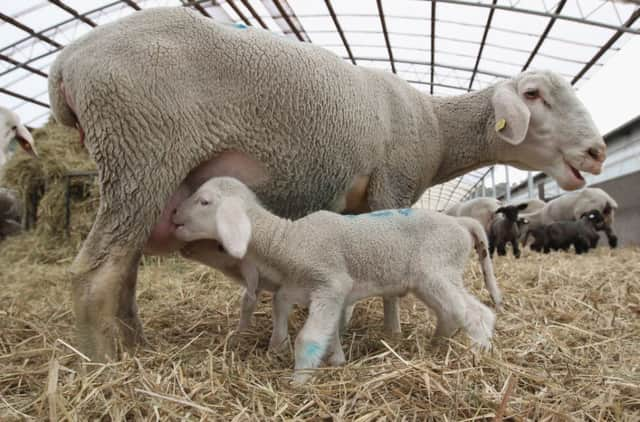Good animal welfare begins in the womb


WE KNOW that the love and support of parents, especially in our early years, is critical to human development. Not only does a parent provide the food, shelter and comfort we need, they also help us shape our thoughts, opinions and cultural references.
For many domestic and farmed animals, the reality is quite different. They are often separated from their mothers at an early age. Scientists, including a team at Scotland’s Rural College, are trying to assess how that affects the offspring – and we are finding that good welfare begins in the womb.
Advertisement
Hide AdAdvertisement
Hide AdIt is specifically mothers we are interested in, because in only 3 per cent of mammal species do fathers naturally play any role in raising the young, and none of our farm animals or pets fall into this category. Of course, while the father has little to no direct effect on his offspring apart from the initial creation, his genetic influence is felt throughout its life.
On the other hand, research has found that the mother’s influences – not only through her genes but also her behaviour, her diet, even her state of mind – can affect her growing offspring. This influence can be felt from before conception until weaning. The mother also continues to shape and influence her young as part of her maternal care as she teaches them how to behave, what to eat and who they are.
It is true of humans too. We know, following natural and man-made events, that pregnant women, suffering stress or lack of food, may produce children that have altered growth. There can be an increased likelihood of them becoming obese and developing cardiovascular disease or diabetes in later life.
Only recently have we started to consider that farm animals may be susceptible to exactly the same influences and impacts in their development. For example, research has found a host of subtle changes in behavioural responses may occur in young animals, depending on how the mother is treated during pregnancy.
Pregnant farm animals are exposed to varied experiences during their term, some of which can be potentially very important in altering the development of their babies. The terrible spring weather of 2013, where some ewes gave birth under snowdrifts, cannot have failed to influence their developing lambs and caused lifelong changes in their development.
Our work on undernourished pregnant sheep has shown that underfed mothers are less attentive to their offspring at birth and that the lambs’ ability to learn is negatively affected as a result. Another study on lambs’ brains identified the results of the prenatal stress suffered by the mothers.
Similar work at SRUC on pigs has shown that when pregnant sows experience stress, the behaviour of their piglets is different from those born to mothers who had a calm pregnancy. Those stressed piglets will also grow up to be poorer mothers themselves and more likely to have a difficult birth, even if they have an uneventful pregnancy.
Our increased awareness of these issues comes as an expanding world population is demanding more food.
Advertisement
Hide AdAdvertisement
Hide AdThe concern for those of us working in animal welfare science is that our understanding is not lost as producers are pushed to intensify their systems. We must ensure that they, along with consumers, realise how much mothers matter.
• Professor Cathy Dwyer is a lecturer at SRUC, Scotland’s Rural College, www.sruc.org.uk
SEE ALSO